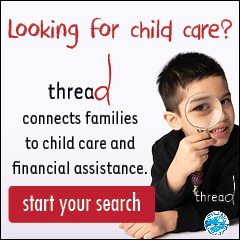How to talk with your children about alcohol
By Tiffany Hall, executive director of Recover Alaska
Having the “alcohol talk” with your child can be a daunting milestone. It’s difficult to know how to go about it, when to bring the topic up and how to convey a certain level of seriousness without alienating your child. However, the bottom line is that no matter what, your kid has questions about alcohol. If you don’t answer those questions, they will find the information (factual or not) from a different source. According to the Substance Abuse and Mental Health Services Administration, about one in three 15-year-olds has tried alcohol – which means two out of three teens have not! Waste no time. Opening a conversation early on and establishing a firm foundation of trust will play a critical role in their decision to experiment with alcohol. Not saying anything can sometimes be the biggest statement of all.
Here are seven tips and strategies for talking with your kids about alcohol use:
-
Don’t wait until you’ve caught your child drinking to begin the conversation. Even if you feel sure they aren’t experimenting with alcohol, giving them knowledge about moderation and safety can make all the difference if and when they do.
-
Begin by asking your child his or her own views about alcohol and underage drinking. This will also give you the context of their thoughts and a jumping-off point for how to steer the conversation.
-
Don’t feel pressure to cover everything in one big conversation. Opening a dialogue and building trust is the most important part. Bringing it up more than once and weaving it into other conversations will help normalize the subject, making it easier to ask questions throughout adolescence.
-
Select a neutral space and time to begin the discussion. Spend some time thinking about the conversation beforehand and approach the topic without judgment and punishment.
-
Make sure your child walks away from the conversation with hard facts. Explain the repercussions of receiving an MIC or a DUI, the risks and tragedies that can come from driving under the influence, as well as the specific effects of alcohol on their brain. (For costs and consequences, visit: doa.alaska.gov/dmv/faq/dui.htm.) Information about at what quantity alcohol becomes deadly is important to impart as well. (Statistics on teen drinking from the National Institute on Alcoholism and Alcohol Abuse can be found here: pubs.niaaa.nih.gov/publications/underagedrinking/underagefact.htm)
-
Be clear about what the rules and expectations regarding underage drinking will be in your family. While you are at it, model good behavior for your children, and if you choose to drink, do so responsibly, keeping in mind that your relationship with alcohol will be a model for theirs.
-
Stay connected: Research shows that children who have dinner with their families are 50 percent less likely to drink alcohol. If a family dinner is not an option, stay active in your children’s lives, and have plenty of conversations about life in general.
These simple steps can be a huge help as you begin to tackle the topic of alcohol with your child. Though the nationwide statistics on teen alcohol use can feel overwhelming, there are also some impressive statistics about the youth right here in Alaska. In fact, 78 percent of Alaska’s high school students do not drink alcohol, and alcohol use among this statewide demographic has decreased 16 percent over the last 10 years. So let’s keep the conversation going, and encourage the future of Alaska to make smart and healthy choices.

Tiffany Hall is the executive director of Recover Alaska, an organization working to recover, reclaim and restore the strengths of Alaska’s families and communities by celebrating the true stories of Alaskans overcoming alcohol addiction and by providing valuable resources to the entire state. For more information visit: recoveralaska.org.










